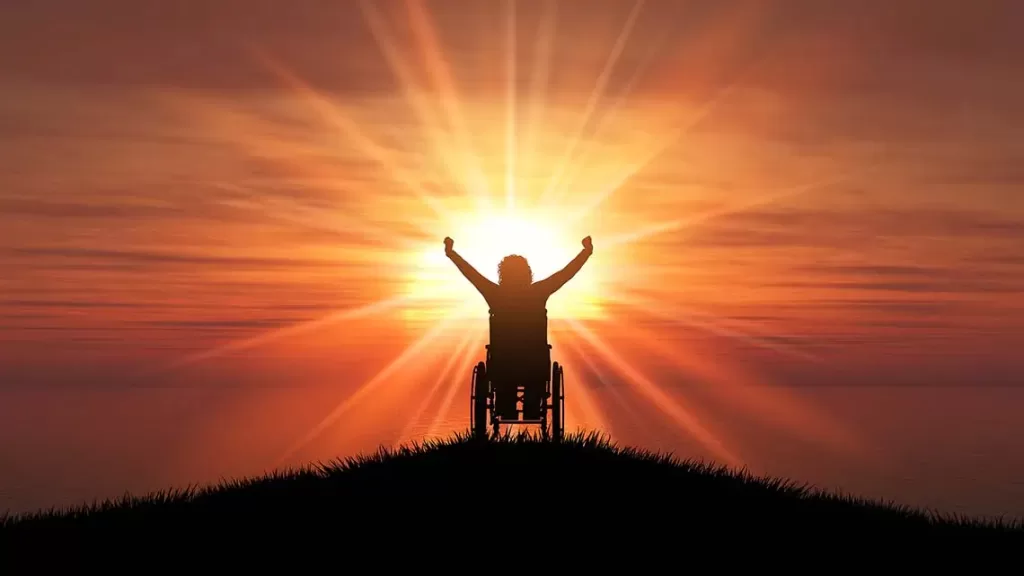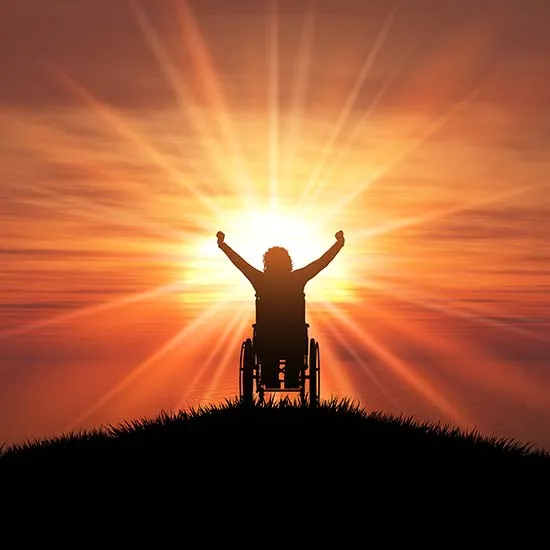Every year on December 3, the world observes the International Day of Persons with Disabilities, a time to raise awareness and celebrate inclusion. Many people living with disabilities face daily challenges, from chronic pain to mental stress. While traditional medications help, they may not work for everyone and often have side effects.
Cannabis is emerging as a promising alternative. It’s natural, versatile, and increasingly backed by research. In this blog, we’ll explore how cannabis options for disabilities can enhance daily life for those managing various conditions.
Understanding Cannabis: What Makes It Special?
Cannabis is not just a recreational substance. It has been used for centuries for its therapeutic benefits. But what makes it effective for people with disabilities?
The plant contains compounds called cannabinoids, which interact with our body’s endocannabinoid system (ECS). This system helps regulate mood, pain, appetite, and sleep.
Key Cannabinoids in Cannabis
THC (Tetrahydrocannabinol):
- This compound is psychoactive, meaning it can make you feel “high.”
- It’s effective for pain relief,reducing muscle spasms, and improving appetite.
CBD (Cannabidiol)
- CBD is non-psychoactive, so it won’t make you high.
- It’s widely used to reduce anxiety, inflammation, and seizures.
Both THC and CBD can work together to provide holistic relief. Many products at 7 Engines Dispensary offer varying ratios of THC and CBD, so you can choose what suits your needs best.
Why Cannabis Can Be a Game-Changer for Disabilities
People with disabilities face unique challenges that can affect nearly every aspect of their lives. Chronic pain, mental health issues like anxiety and depression, trouble sleeping, and muscle spasms are just a few of the common obstacles individuals with disabilities must navigate daily. Traditional treatments like prescription medications, physical therapy, and even surgery often come with their own set of limitations and side effects. For many, cannabis is offering an alternative approach to managing these issues in a natural and holistic way.
Addressing Disabilities: Chronic Pain and Muscle Spasms
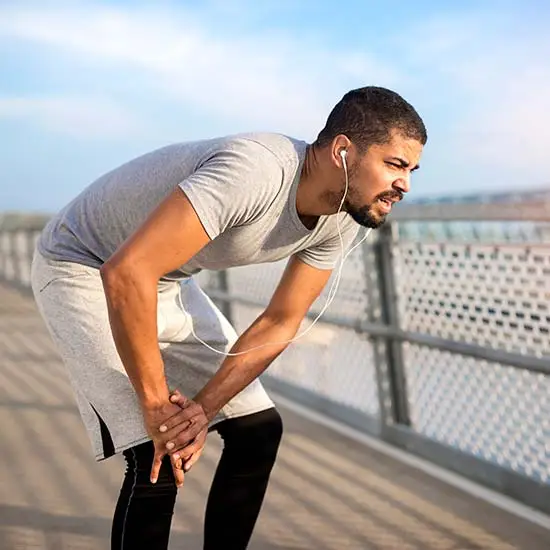
Cannabis is effective in reducing pain and muscle spasms due to its anti-inflammatory and analgesic properties.
THC, the psychoactive compound in cannabis, has a long history of use for pain relief. Studies have indicated that THC interacts with the body’s endocannabinoid system (ECS), which plays a significant role in regulating pain and inflammation.
By binding to cannabinoid receptors in the brain and nervous system, THC can reduce the sensation of pain and muscle spasms, providing relief for those who struggle with chronic discomfort. CBD, the non-psychoactive compound in cannabis, is also effective in managing pain without producing a “high,” making it a viable option for people who wish to avoid the side effects of THC.
Products like pre-rolls offer a potent combination of THC and CBD that can be useful for managing muscle spasms and inflammation associated with conditions like MS or cerebral palsy. Many people report experiencing less pain and greater mobility when using these products regularly.
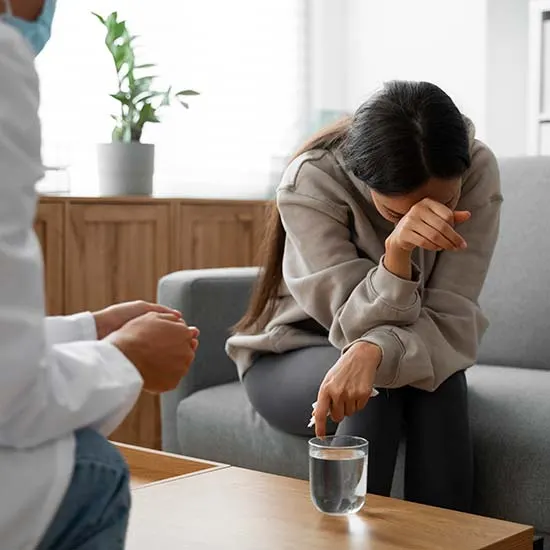
Improving Mental Health & Managing Anxiety
Mental health is another significant concern for people with disabilities. The experience of living with a disability can contribute to anxiety, depression, and even post-traumatic stress disorder (PTSD). These mental health challenges often coexist with physical disabilities, exacerbating stress and negatively impacting overall well-being. Read more on cannabis and PTSD on our other blog post.
Cannabis, particularly CBD-rich products, can help alleviate symptoms of anxiety and depression. CBD interacts with serotonin receptors in the brain, which are responsible for mood regulation. By promoting a sense of calm and relaxation, cannabis can reduce feelings of stress and anxiety, allowing people with disabilities to feel more grounded and emotionally stable.
In addition to anxiety relief, cannabis products like Freedom Green can also help with symptoms of depression by improving sleep quality, which is often disrupted by both physical and mental health challenges. Better sleep leads to better mood regulation and emotional health, creating a more positive cycle.

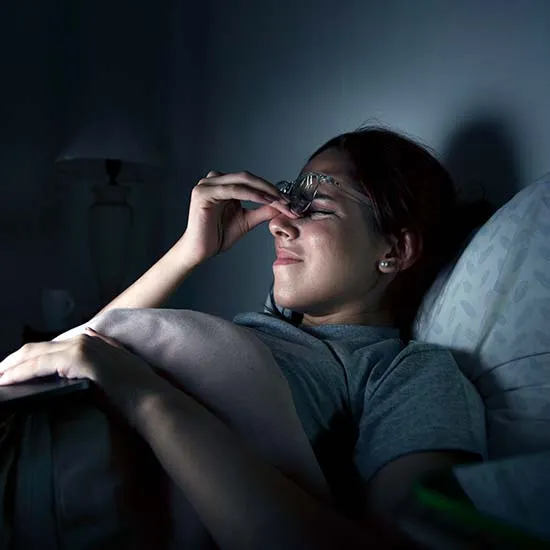
Disabilities & Sleep Disorders
People with disabilities often face sleep disturbances due to physical discomfort, anxiety, or other factors. Whether it’s pain from a physical injury or the emotional toll of living with a disability, getting restful sleep can be a challenge. Insomnia, in particular, is a common issue that many people with disabilities experience.
Cannabis can significantly improve sleep quality by promoting relaxation and reducing pain. THC is known for its sedative effects, which can help individuals fall asleep more easily and stay asleep longer. Additionally, CBD can reduce the symptoms of insomnia by addressing the root causes, such as anxiety or pain. Together, THC and CBD can create a calming, sleep-inducing effect that improves overall rest and recovery.
For those seeking to improve sleep, products like Freedom Green can be particularly beneficial. They offer a slow-release effect that helps maintain a restful night’s sleep without causing grogginess the next day.
Holistic Benefits for Disability Management
What sets cannabis apart from many conventional treatments is its ability to address multiple issues at once, offering a holistic approach to managing disability-related challenges.
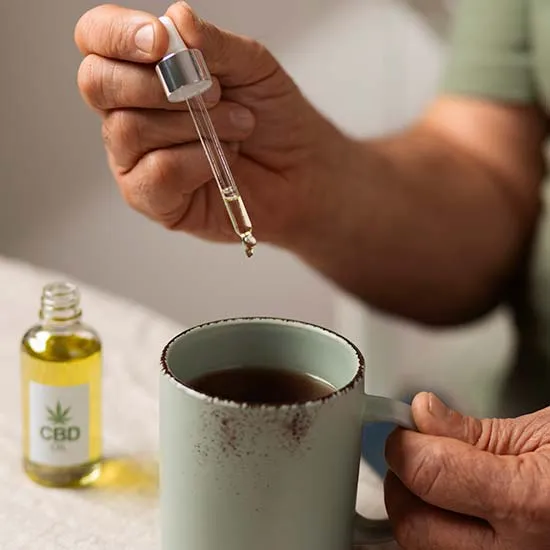
Cannabis doesn’t just target pain or anxiety; it can improve a person’s quality of life in several areas, from mood enhancement to improved social interactions.
For instance, cannabis products can be used to enhance daily routines, reduce the need for prescription medications, and provide a more balanced, natural way to manage symptoms. By helping to restore balance to the body’s endocannabinoid system, cannabis can create a sense of overall well-being, which is especially important for individuals with long-term disabilities. The relaxing effects of cannabis can help people with disabilities manage the stress of daily challenges, promoting a sense of calm and resilience.
Additionally, cannabis offers an alternative for those who have not found success with traditional treatments. Many people with disabilities report feeling more in control of their health when they use cannabis, as it empowers them to take an active role in managing their symptoms without relying solely on pharmaceuticals.


Customization and Personalized Care
Another advantage of cannabis use for people with disabilities is the ability to tailor products to individual needs. Cannabis is available in a wide range of strains, concentrations, and delivery methods (such as oils, edibles, and vaporizers), making it possible to customize treatment to meet specific requirements.
For example, some people may prefer to use products that are higher in CBD for anxiety relief, while others might opt for a higher THC concentration for pain management.
The ability to adjust the dosage and select the right products can lead to better outcomes and greater satisfaction with treatment. Cannabis offers flexibility, allowing people with disabilities to find the right balance that works for their body and condition.
Regular consultations with a healthcare professional can help guide decisions about which cannabis products to incorporate into a treatment plan, ensuring safe and effective use.
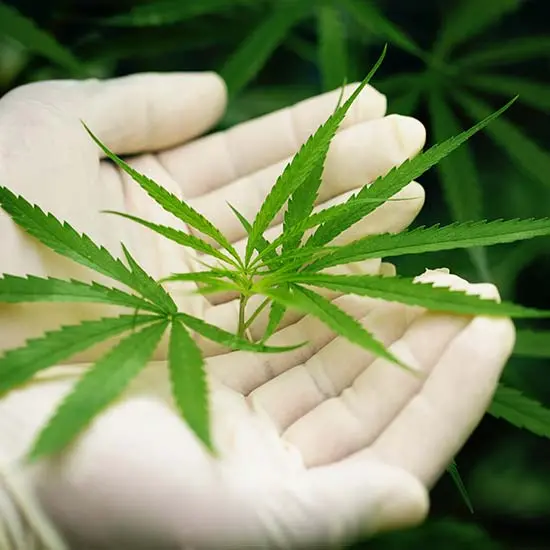
A Natural Alternative with Fewer Side Effects
Compared to traditional medications, cannabis has fewer and generally milder side effects. Many prescription drugs used to manage pain, anxiety, or sleep disorders come with unwanted side effects such as drowsiness, gastrointestinal issues, or long-term health risks.
Cannabis, on the other hand, has a more favorable side effect profile, with most users reporting only mild dry mouth, red eyes, or slight dizziness, which are generally short-lived and manageable.
For individuals with disabilities who may already be taking several medications, cannabis can provide a gentler alternative without the added burden of severe side effects. This can lead to an improved quality of life, as people feel more comfortable using a natural product without worrying about additional health complications.

How Cannabis Helps Specific Disabilities
Cannabis is versatile. It can benefit people with different types of disabilities in unique ways.
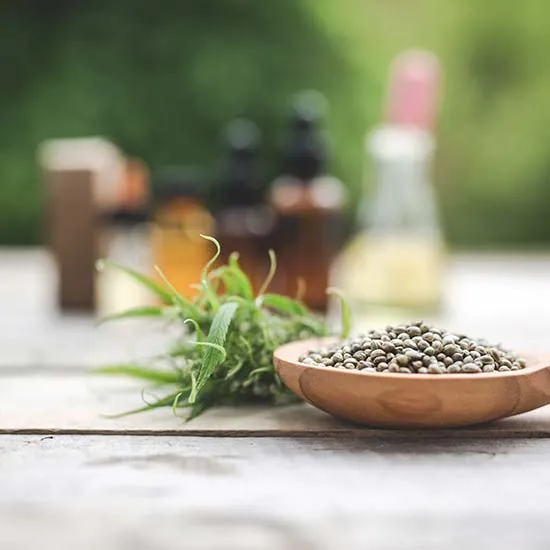
1. Pain Relief for Chronic Conditions
How It Works:
Cannabis reduces inflammation and alters how the brain processes pain signals. Strains with balanced THC and CBD levels, like Fawn River Flower, are great for chronic pain without causing too much sedation.
Real-Life Impact:
Imagine a person with severe arthritis. Daily tasks like opening jars or walking can be unbearable. Cannabis can ease their discomfort, giving them the freedom to enjoy everyday activities.
2. Muscle Relaxation for Mobility Issues
Muscle stiffness and spasms are common in conditions like cerebral palsy and multiple sclerosis (MS). These symptoms can limit movement and independence.
Cannabis Solution:
Cannabis products like live resin help relax muscles and improve mobility. By reducing tension, they make physical therapy and daily routines easier to manage.
Did You Know?
Studies show that cannabis is particularly effective for MS-related spasticity. It is even recommended in some countries as part of treatment plans.
3. Mental Health Support
Living with a disability often impacts mental well-being. Anxiety, depression, and PTSD are common among people managing lifelong conditions.
Cannabis as a Calming Tool:
CBD-rich products like Common Citizen Flower help reduce anxiety without making you high. These options are perfect for daytime use.
A Step Toward Wellness:
For someone feeling isolated or overwhelmed, cannabis can provide a sense of calm. It’s not a cure, but it can support therapy and other mental health treatments.
4. Sleep Improvement for Better Recovery
How Cannabis Helps:
Cannabis products, such as pre-rolls, promote relaxation and deeper sleep. For those with insomnia, even a small dose before bed can make a world of difference.
Better Sleep, Better Life:
When sleep improves, so does overall quality of life. A good night’s rest can boost mood, energy, and focus during the day.
5. Support for Neurological Conditions
Example Product:
Types of Cannabis Products Available
At 7 Engines Dispensary, there are many ways to use cannabis. Each product type has unique benefits.
1. Flower
The dried cannabis plant is versatile & effective. You can smoke it or vaporize it. Strains like Freedom Green are ideal for quick relief.
2. Edibles
3. Topicals
Cannabis-infused creams or lotions are applied directly to the skin. They are perfect for localized pain or inflammation.
4. Vapes
Vaporizers heat cannabis oil into vapor, providing fast relief. Products like Cali Blaze Carts are great for on-the-go use.
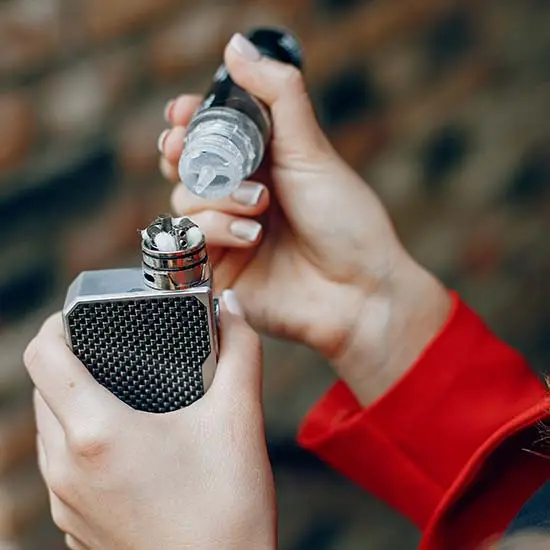
5. Pre-Rolls
These ready-to-use joints save time and are easy to carry. Pre-Rolls combine convenience with potency.


Debunking Myths About Cannabis
There’s still some stigma and misinformation around cannabis. Let’s address a few common myths:
Myth: Cannabis makes you lazy.
Fact: Proper use can increase focus and energy, especially with CBD-rich strains.
Myth: All cannabis makes you high.
Fact: Many products, like CBD oils and topicals, don’t have psychoactive effects.
Myth: Cannabis is unsafe.
Fact: When used responsibly, cannabis is safer than many prescription drugs.
Cannabis and the Importance of Self-Care for People with Disabilities
Self-care is crucial for everyone, but it becomes even more vital for those managing a disability. Taking care of your body, mind, and spirit is essential to improve well-being and quality of life. While traditional forms of self-care, like exercise and diet, are important, cannabis can be an additional tool in promoting overall wellness.
Integrating cannabis into a self-care routine can offer several benefits, especially when used to address specific challenges that come with a disability. Here’s how you can build a routine that includes cannabis:
Morning Routine: Energize and Prepare for the Day
Starting your day on the right note can set the tone for productivity and positive energy. Many people with disabilities experience chronic pain or stiffness in the morning, which can make it difficult to get started. Using a cannabis product with a moderate level of THC, like Pre-Rolls, can help ease muscle tightness and set a calm tone for the day ahead.
Midday Break: Manage Stress and Maintain Focus
Midday stress can derail your entire day. Whether you’re working, managing household tasks, or simply trying to stay on top of things, cannabis can be used to maintain focus and manage anxiety. Indica-dominant products like Freedom Green offer calmness without sedation, helping you stay sharp and productive throughout your day.
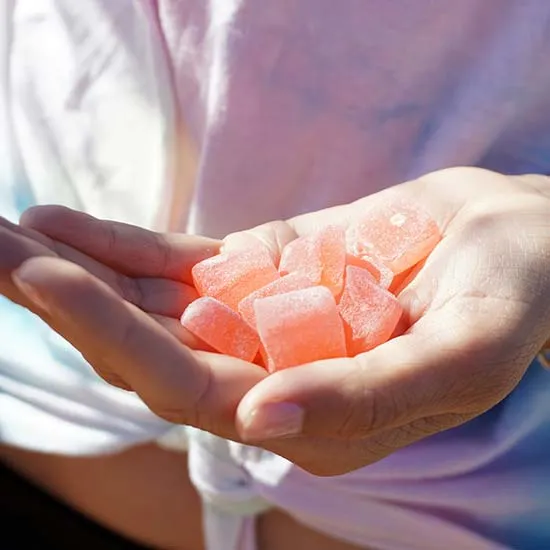
Evening Routine: Wind Down and Improve Sleep
One of the most significant benefits of cannabis for people with disabilities is improving sleep quality. Whether pain or anxiety keeps you awake, cannabis can help you relax before bedtime. Products like gummies are an excellent choice for evening use. They provide steady, long-lasting effects that help ease your body into a restful state, preparing you for a rejuvenating night’s sleep.
Mindful Consumption
Being mindful about how and when to use cannabis is key to experiencing its benefits. Whether you need relief from physical discomfort or want to reduce stress and anxiety, knowing what works for you can help you feel more in control. It’s essential to start with low doses and pay attention to how cannabis interacts with your body and mind.
By incorporating cannabis into your daily self-care routine, you can create a more balanced and harmonious life, addressing both physical and mental health needs in a natural, effective way.

The Future of Cannabis and Disabilities
The information provided is not a substitute for professional medical advice, diagnosis, or treatment. Consult with a qualified healthcare professional for personalized advice based on your medical condition.

